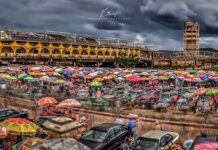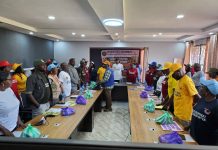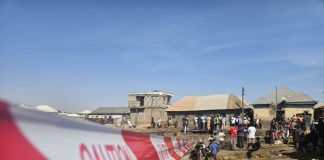In recent months, the Jos Main Market issue in Plateau State has sparked heated debates and divided opinions across the region. While the government’s efforts to sanitize the area are commendable, the lack of provision for alternative trading spaces for affected merchants raises serious questions about the welfare of these individuals and the broader implications of such actions.
Plateau State, like many others in Nigeria, grapples with the challenges of informal trading spaces, often characterized by congestion, unsanitary conditions, and security concerns. The Terminus Market, located in the heart of Jos, has been a hub for commerce for decades, serving as a vital lifeline for thousands of traders and consumers alike.
The recent decision by the Plateau State Government to clean up the Terminus Market is undoubtedly a step in the right direction. It aims to address the myriad issues plaguing the area, from sanitation to security, and to create a more conducive environment for both traders and shoppers. However, the manner in which this cleanup is being carried out raises concerns about the welfare of the traders who depend on the market for their livelihoods.
One of the most glaring issues is the lack of alternative trading spaces provided for the affected merchants. While the government is quick to demolish and clear the market, there seems to be little consideration for where these traders will go next. For many of them, the market is not just a place of business but a community where relationships have been built over years, if not generations. Displacing them without offering viable alternatives not only jeopardizes their means of survival but also disrupts the social fabric of their lives.
Moreover, the absence of alternative trading spaces exacerbates the already dire economic situation facing many of these traders, particularly in the wake of the COVID-19 pandemic. With limited options available, some may be forced into even more precarious forms of livelihood or, worse, pushed into poverty.
The government’s failure to provide alternatives also raises questions about its long-term vision for urban development and inclusive growth. While cleaning up the Terminus Market may improve the aesthetics of the area and attract investment, it should not come at the expense of the most vulnerable members of society. Sustainable urban development requires a holistic approach that balances economic growth with social equity, ensuring that no one is left behind in the pursuit of progress.
In light of these concerns, it is imperative that the Plateau State Government reconsiders its approach to the Terminus Market issue. Instead of simply demolishing and displacing, it should engage with affected traders to develop a comprehensive relocation plan that takes into account their needs and aspirations. This could involve providing temporary trading spaces, skills training, or financial assistance to help them transition to new opportunities.
Furthermore, the government must work closely with relevant stakeholders, including local communities, civil society organizations, and urban planners, to develop a more inclusive and sustainable urban development strategy. This should prioritize the needs of marginalized groups and ensure that any redevelopment efforts are guided by principles of social justice and equity.
In conclusion, while the Plateau State Government’s efforts to sanitize the Terminus Market are laudable, they must be accompanied by measures to protect the livelihoods and rights of affected traders. By neglecting to provide viable alternatives, the government risks exacerbating poverty and inequality in the region, undermining its own development objectives in the process. It is time for a more nuanced and inclusive approach to urban development that prioritizes people over profit.







